A Double-edged Sword, Sharing Economy
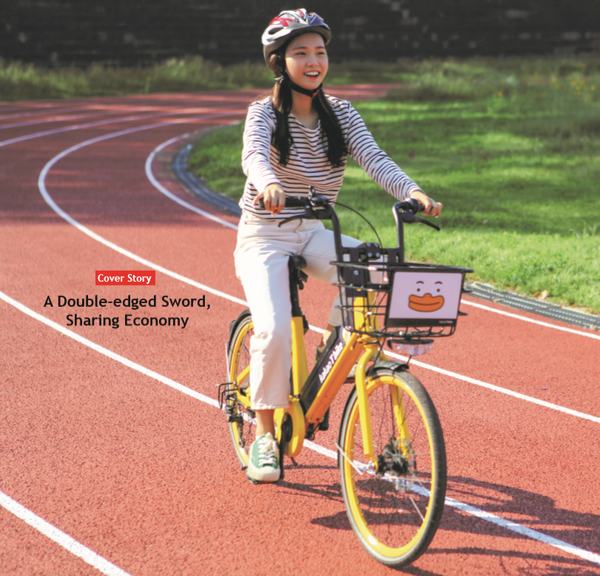
Have you seen people riding yellow bicycles around campus? Jeonju was designated as one of three model cities in Korea to promote the use of the 'Kakao T Bike,' those yellow bikes. Kakao T Bike is an electric bicycle sharing service, which may be accessed through the Kakao T application. This recently developed service has caught the public's interest in the sharing economy. Would you like to learn more about sharing economy with us?
Who Are You, Sharing Economy?
In 2008, Professor Lawrence Lessig founded contemporary meanings for a sharing economy in contrast to a commercial economy. According to Prof. Lessig, a sharing economy is an economic way of sharing products with many other people. Not only products, but also manufacturing facilities and services can be borrowed and lent as much as one needs. To sum up, a sharing economy is a concept of giving resources to others and borrowing products from each other, not owning it.
However, this concept is not new. Centuries ago, nomadic life involved few burdens, as opposed to today. There were fewer individual belongings, and many common items were shared with others in the community. After they started to settle in one place and started living a more sedentary life, they started to share labor practices. In today’s world, development of the internet and usage of big data helped those who need resources and those who hope to share resources to find each other easily. This phenomenon has accelerated the re-development of a sharing economy. For example, Airbnb, an accommodation sharing service, is quite commercialized so that it has more users than general bed & breakfasts, pensions, or hotels. In the future, the electric scooter and autonomous cars are expected to dominate the sharing economy market. G-cooter, an electric scooter-sharing service has started its service at JBNU since September 2019 and is willing to expand in order to service more regions.

Don't Go There. Live There.: Airbnb
Airbnb is the world's largest accommodation-sharing service. Airbnb, which began in August 2008 in the U.S., means "Airbed & Breakfast." Renters and tenants share idle space through a peer to peer (P2P) method through websites, while Airbnb earns revenue from brokerage fees for transactions. This service started in Korea in 2013, and the number of guest reviews using Airbnb in Jeonju amounts to 20,000. Jeonju is a tourist city visited by 11 million tourists as of 2017. With Airbnb activated, tourists have more accommodation options wherever they travel to, including Jeonju. Airbnb makes it possible to experience the various types of dwellings in each area as they are. Without a shared system, Airbnb's slogan, "Don't Go There. Live There." might not have existed.
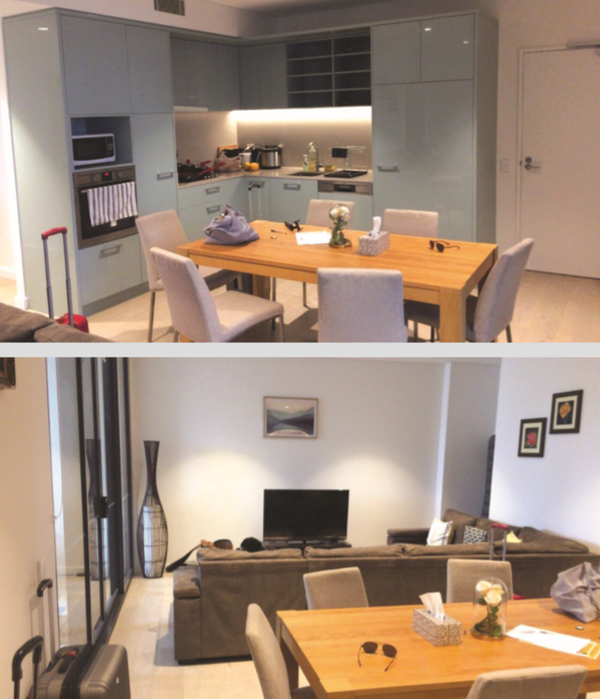
Revolutionize Your Workspace: WeWork
WeWork is an office-sharing unicorn company founded in the U.S. in 2010. It entered in the Korean market in August 2016 and has 20 branches operating in Seoul and Busan. WeWork leases the whole large building in major cities, dividing the building into sections, and renting it back to several tenants, earning profits through rental. At first glance, the profit structure of WeWork appears to be a real estate industry. What's the difference between a typical real estate industry and WeWork? As its name suggests, WeWork seeks collaboration within a shared office. Inside WeWork, there are various members who work in different fields. They are free to meet other members in a resting area called the ‘lounge’ to share information and communicate freely. There are regular events at WeWork every day, so there is always an open way to meet new people. In addition, WeWork members can use other branches in foreign countries and meet people from different cultures if they make reservations in advance through WeWork's website or application. However, just because there is a good environment for collaboration, it doesn't mean that collaboration actually happens. Conditions for good collaboration depend on who the members work with rather than on a plausible environment. WeWork should solve not only the problem of the effectiveness of collaboration, but also the chronic problem of centrally controlled heating and cooling system and high monthly fees.
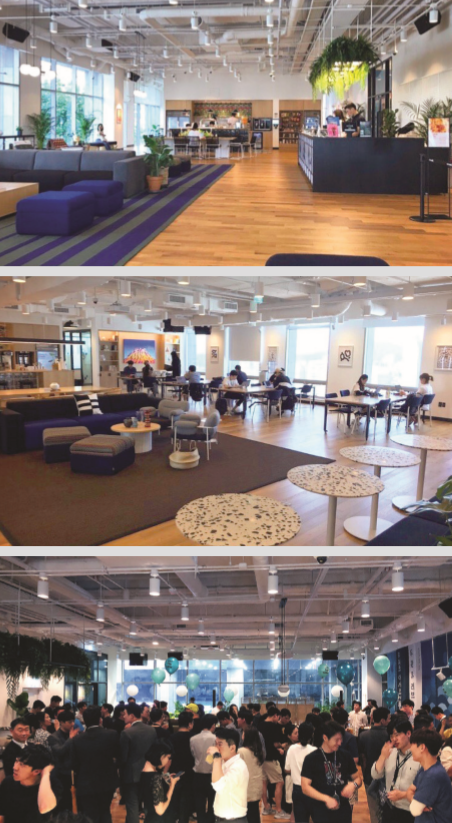
Kakao T Bike for Everyone's Mobility
Kakao T Bike is an electric bicycle sharing service operated by Kakao Mobility. A total of 300 electric bicycles began operating around our university and Jeonju city on July 23, this past summer. Kakao T bike is a PAS (Pedal Assist System) bicycle that automatically operates the electric motor when the pedals are turned. It is a useful service to travel the places that are difficult to reach by public transportation. Also, shared bicycles can be returned to anywhere inside the service area.
The Kakao T bike service was started through the Kakao T application. All service features such as locating, unlocking, returning, settling charges, reporting problems, and inquiring about bicycle usage, are done through this application. A deposit of 10,000 won is payable on initial loan and a fee of 500 won is incurred on subsequent refunds. The service charge will be 1,130 won for the first 15 minutes and 500 won for every five minutes thereafter. Bicycle fees include 130 won in insurance, but those whose residence is not in Jeonju are not covered by insurance. An additional 20,000 won will be charged when you finish using the bicycle other than service area.
When using a Kakao T Bike, an initial 10,000Won deposit is required, with a subsequent fee of 500Won upon return of the bicycle.
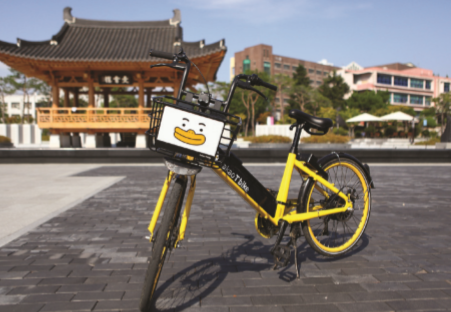
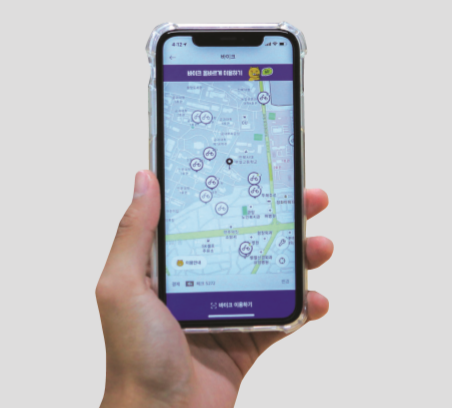
On September 26, JBNU reporters used the Kakao T bike. Among the service areas, most bicycles were crowded around JBNU. But it took more time to rent a bike than we thought. Bicycles were discharged, and there were no bicycles in the right location on the map. The only available bicycle had trash in the basket and had no handle grips. More effort seems to be needed to managing the bicycle.
The first time I rode Kakao T bike, it felt like someone is pushing behind my back. At first, it was not easy to control the speed, but it was very convenient after getting used to it. I was able to go up the hill with little effort and pass the places that could not be reached by cars. When the bike reached over 20 km/h, the motor did not work, so I could avoid speeding. Also, brakes worked so well that it was possible to ride a bike safely.
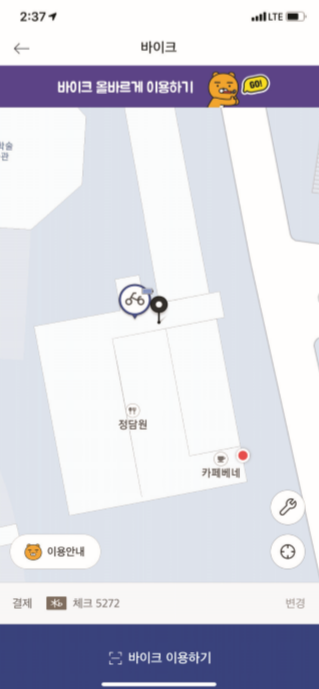
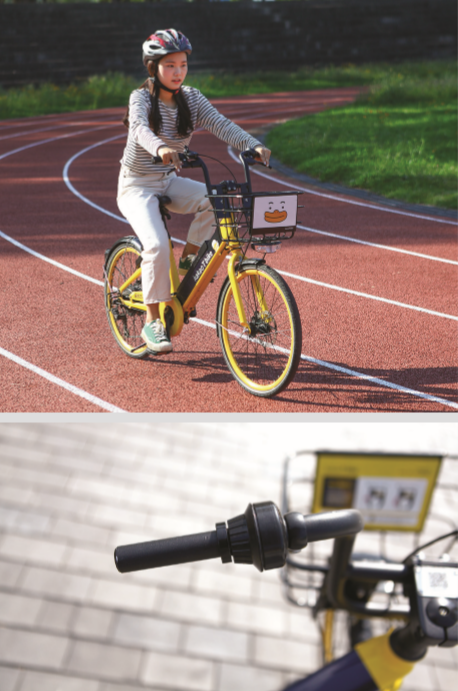
Problems with a Sharing Economy
The emergence and rapid development of sharing economy services are affecting the world’s society. A sharing economy has many advantages and also disadvantages. Let’s take a look at these problems in the case of the accommodation business and Kakao T Bike.
1.Reverse discrimination of regulations and friction with existing businesses
One of the most prominent issues in a sharing economy, is conflict with existing businesses. This reduces the profits of existing businesses, as a sharing economy replaces existing businesses that offer similar services. Statistics from the Korea Development Institute (KDI) showed that every 10 percent increase in the supply of accommodation through Airbnb resulted in a loss of about 0.16 percent in room sales in the hotel industry. Another data statistic shows that consumers who ever used a sharing economy service are unwilling to use conventional services by nearly 90 percent. This fact suggests that sharing economy services put competitive pressure on existing businesses.
Moreover, if regulations on existing businesses do not apply fairly to the new sharing economy, the negative impact on existing industries is certain. Many "hosts" on accommodation sharing platforms such as Airbnb are not officially registered businesses, unlike traditional accommodation providers, they are not subject to safety and tax-related regulations. Also, "hosts" often avoid safety and tax regulations. Through this, sharing economy service providers have a financial advantage over existing businesses.
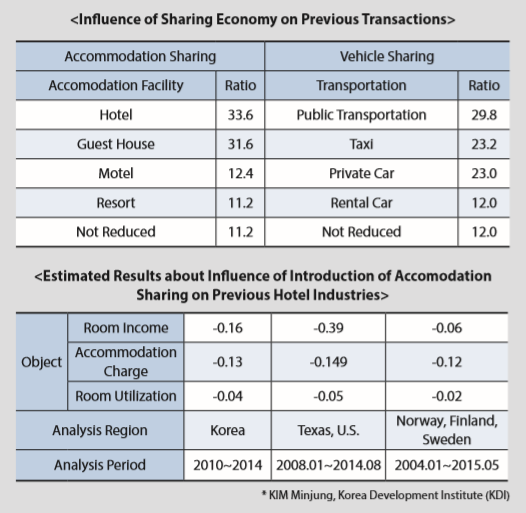
2.Risks of transaction and social safety issues
In most cases, a sharing economy involves non-standardized service transactions, meaning there are several risks. Due to the high level of information asymmetry with service providers and users, it is difficult for consumers to determine the level of service quality. For instance, in an accommodation sharing service, information asymmetry often results in negative effects such as low quality or different location of accommodations compared to the specified information and photographs on the platform. There have been extreme cases where the accommodations don’t exist, where hidden cameras are found, or where sexual assault is committed by the host.
If the sharing economy triggers negative external effects beyond the scope of participants, it could even jeopardize social safety. Accommodation sharing services bring tourists to residential areas, causing great noise pollution to neighbors. In addition, there were reports of a case in Barcelona, Spain, here homeowners planned to launch an Airbnb service which would be more profitable than a rental business, and would drive out existing tenants or raise their rent.
As previously mentioned, accommodation sharing services are not registered as businesses, so the services don’t guarantee safety from risk of fire or disease. Also, Kakao T Bike does not provide helmets for safety. According to the traffic law, all bicycle riders should wear helmets. However, Kakao T Bike customer center just says, 'For your safety, wear a personal helmet if possible.'
3.Lack of citizen awareness
Have you ever heard of the saying, “The tragedy of the common land?” The tragedy of the common land means, 'If there is a pasture open to all, the shepherds will preserve their property and graze only in the common pasture, and soon that pasture will be devastated.' Sharing economy services are quite similar. Although people pay for the use of sharing economy services, the goods or spaces they borrow are not their own, so Some of them use them selfishly for their own convenience and do not treat them as valuably as they would their own possessions. Ttareungyi, a bicycle sharing service in Seoul required its users to use provided helmets, without charging additional rental fees. However, discomfort of the helmets and concerns about hygiene led to only three percent of the service users taking advantage of the added safety protection offered, and 24% of the helmets were lost in a month.
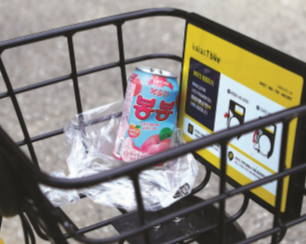
<Interview with Park Soo-young, Professor of Law school>
Q. What Do You Think of The Problems of a Sharing Economy?
I think that the problem is that sharing economies, created for environmentally friendly consumption from limited resources, become excessively commercial. There is also a problem of declining sales of items which are used in sharing economy services, and there are insufficient treatments such as insurance for accidents caused by using a sharing economy service.
Q. Why Are We Having These Problems with a Sharing Economy?
Since the platform for providing sharing economy services is developing rapidly with the advancement of IT technology, the statute to regulate the negative aspects of such platform prevents the service from catching up to the speed of IT development. And major foreign companies’ sharing economy services, without a domestic subsidiary, are quite difficult to regulate, as it is difficult to aggregate the size of their business.
Q. Can You Suggest a Correct Direction of Development for a Sharing Economy?
For the safety and convenience of users, sharing economy service platform companies must state the identity of the service providers and set the necessary requirements for the service. In addition, the sharing economy services should be for the benefit of all who are part of the initial intention. The government should work on enacting laws to limit the side effects of a sharing economy services.
Q. Can You Suggest an Appropriate Attitude Toward Sharing Economy for JBNU Students?
Of course, we shouldn't carelessly use sharing goods that everyone uses. We also need to think critically about the sharing economy services we just use conveniently, and claim our rights as consumers. Lastly, when you have been disadvantaged by using sharing economy services anywhere in Korea, you should contact the Korea Consumer Agency.
As was mentioned above, the problems of conflict and reverse discrimination with existing markets should be solved by revising laws related to sharing economy and tax collection regulations. In particular, it is necessary to impose appropriate sanctions on the unrestricted shared lodging industry through government regulations. The purpose of a sharing economy is to share idle resources to prevent unnecessary waste. This is the way of co-prosperity and cooperation. The act of recklessly using public goods or selfishly monopolizing them is out of line with the original purpose of the sharing economy and should be avoided. Don't forget that the damage caused by over-use of public goods is ultimately harming yourself.

